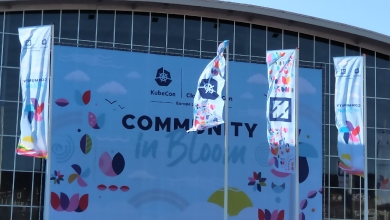
It was a wrap today at this week’s annual European KubeCon conference in Amsterdam, and IT Europa was there. Continuing our Kubernetes partner services and DevOps coverage around the event, here are some more developments.
Channel-first cloud security services firm Lacework announced the expansion of its cloud-native application protection platform (CNAPP) capabilities, with a vulnerability risk management technology.
By combining active package detection, attack path analysis, and active exploit data from Lacework Labs and curated feeds, Lacework generates personalised risk scores based on a customer's unique cloud environment.
This allows organisations to reduce up to 90% of “vulnerability noise”, said the vendor, and quickly prioritise fixing the vulnerabilities that matter most.
New capabilities include Kubernetes context, with Lacework discovering attack paths to Kubernetes-based applications, including internet-exposed services and open ports. Security teams can utilise this context to efficiently communicate Kubernetes-related work items to developers.
In addition, a top risk dashboard provides immediate visibility into the top risks across multiple risk domains, including exposed secrets and attack paths to critical data assets. New active vulnerability detection is leveraged to prioritise these findings.
Spectro Cloud, a provider of Kubernetes platform management, has taken the wraps off its Secure Edge-Native Architecture (SENA). SENA, an enterprise-ready solution architecture built on zero-trust principles, that was developed with support from Intel, enables teams to efficiently deploy, provision, operate and manage edge environments at scale – a growing market for Kubernetes.
SENA provides flexibility and manageability across all layers: from the hardware to the OS, Kubernetes distribution, any additional integrations and tools, all the way up to the application.
“Kubernetes has rapidly evolved from largely DIY and intellectual debates about various Kubernetes distributions, to optimising management at scale across the full lifecycle, and delivering flexible solutions that are fit-to-function for various use cases and environments – such as the edge," said Tenry Fu, Spectro Cloud CEO. “Through our collaboration with Intel we are redefining the standard for edge Kubernetes.”
Kubernetes management provider Mirantis used KubeCon to put more meat on the bones of its ZeroOps initiative, to enable businesses to build containers and Kubernetes value by eliminating the worry and burden of maintaining infrastructure and systems.
“Operators and developers can spend vast amounts of time struggling with containers and Kubernetes, rather than working on the applications themselves, and developers are often forced into the de facto role of operator," said Shaun O’Meara, field chief technology officer of Mirantis.
“Our main goal is to free developers from the need to do operations, and to enable operators to stop focusing on problems that have already been solved multiple times.”
In the past year, Mirantis has acquired two companies, amazee.io and Shipa. amazee.io's Lagoon product provides a pattern for delivering apps without having to even learn containers or Kubernetes, while Shipa helps automate much of the complexity of the management of cloud-native applications, both existing and new application deployments.
Among other Mirantis tools, both acquisitions are furthering Mirantis' ZeroOps initiative to provide software and services that make it easy for enterprises to deploy and manage their technology infrastructure, to help “maximise developer productivity”.
The Cloud Foundry Foundation is now majoring in the same field as Mirantis, and has released the latest version of Korifi, a platform-as-a-service (PaaS) that “reduces much of the complexity of Kubernetes” and “greatly improves the application deployment experience”.
Many organisations face challenges when using Kubernetes infrastructure to deploy their applications, but it can be complex and difficult to manage for developers who are not familiar with its nuances. Korifi aims to simplify the deployment process for developers by providing a more streamlined and user-friendly interface on top of Kubernetes infrastructure.
Updates to Korifi in v.0.7.0 include improved logging, labels and annotations are now supported on all resources, there is an automatic clean up of unused resources, and also support for multiple apps in manifests.

